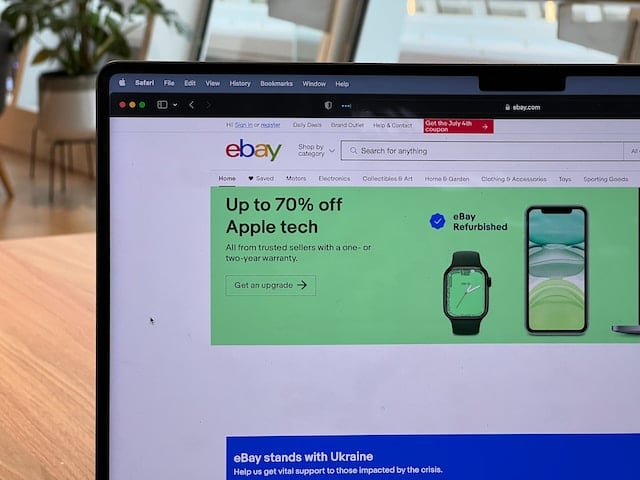Right now, the hottest topic in content marketing is AI. This is no surprise when you consider that AI tools are brand-new technological toys on the market. Furthermore, there is an army of writers and editors who feel that their job is directly threatened by this new technology. Part of the discussion also concerns the quality of content created by AI. Add valid concerns about intellectual property rights, privacy, and ethics, and it is easy to see why content marketing with AI is often considered the bogeyman.
Although I am not a fan of using AI for everything — the human touch is far superior for most long-form content and anything that involves original thought — there are some uses for this technology in content marketing. With that in mind, let’s take a look at how AI can help marketers.
Defining AI in Content Marketing
Simply put, AI in Content Marketing is any use that replaces traditionally manual marketer tasks with automated AI algorithms. In other words, it’s an automation tool on steroids. The difference is that AI has some ability to make decisions and act on them. Examples include chatbots, social media posts, and personalized automated emails.
What are the Benefits of Using AI for Content Marketing?
Without there being some benefit to AI use beyond shiny object status, there’s a good chance that this new set of tools wouldn’t have become so cool. Especially when it comes to tedious tasks and difficult data analysis, there are some excellent uses of AI for content marketing. This is true even though human input is critical for many aspects of the marketing process.
Further Reading: Benefits of AI in Marketing: 18 Ways to Boost ROI in 2025
Create Better, Targeted, and Quality Content
There are some uses for AI in content generation. In particular, AI can help you gather ideas, build an outline, or write short social media posts. Here, the AI program can use information about your different market segments and desired audience to make your content more appealing. However, you’ll want to perform fact-checking and editing as appropriate to make sure that everything is accurate.
Enhanced Personalization
AI for content marketing can leverage audience insights to personalize targeted content. For instance, a newsletter promoting the hottest vacation spots may be more effective when properly segmented to promote the right location to the right people. That is, not everyone wants to go to Hawaii or the South Florida coast. Not everybody is a beach lover, so if you promote a beach vacation to the wrong people, they probably won’t follow up. On the other hand, if your data sets indicate that a target customer loves to ski, then the newsletter could advertise a Vermont or Colorado resort.
Personalization is actually the most popular way in which CMOs are currently leveraging AI in marketing as a whole:

Improved User Experience
People hate it when they can’t communicate or when they have trouble finding information that they need. One efficient use of AI for content marketing is bridging the gap between what the customer wants or needs and what they can easily obtain. A great example of this is Amazon Alexa, which can quickly search the Internet to find answers to your questions and save you a lot of time.
Identify Trends and Insights
There are many reasons why humans often cannot see the forest through the trees. The volume of information that has become available over the past couple of decades has made it difficult to determine what’s relevant and what is. Furthermore, human biases can make it harder to distinguish fact from fiction or exaggeration.
AI tools can help you sift through the data to identify trends and Insights that may not have been visible otherwise. Then, you can craft better content and formulate your strategy based on those insights. Hopefully, you can do this better than the competition.
Automates Tasks and Processes
Finally, an excellent use of AI for content marketing is automation. The proper use of AI can streamline many of your content marketing tasks, freeing your office staff to perform more complex work. For instance, people can spend time developing creative new ideas rather than crunching numbers.
7 Ways to Start Using AI in Your Content Marketing Today
As I mentioned above, there are some ethical concerns surrounding the unchecked use of AI or Leveraging it beyond its capabilities. However, there are still many useful AI for content marketing applications. Let’s take a look.
1. Automate Content Creation
Right now, this is the most controversial way to use AI. And at the end of the day, there’s a right way and wrong way to leverage generative AI. For instance, this article was written by hand, not by a machine. That’s because I want my unique perspective and thought processes to come through in the content. On the other hand, social media posts that promote this content or short email copy can easily be generated by AI because it’s much less complex. In fact, email marketing is the number one use case scenario for AI in marketing according to this study:

Further Reading: 23 Recommended Tools for AI Content Creation
2. Personalize Content
One of the most tedious marketing-related tasks for decades has been personalizing content. Back in the old days, before word processors even existed, one of the few ways to personalize communications without crafting something entirely new was by typing in someone’s name by hand. If you had a Mailing of 500 letters, this took a long time. Then, administrators leveraged mail mergers and email lists to send personalized content with different names.
Up until this point, personalization of marketing materials has mostly been changing names or, later on, segmentation. However, an AI tool can make more personal changes to your text and appeal to each person with minimal added effort on your part.
3. Use Chatbot for Knowledge Bases and Customer Service
Chances are that you have seen this technique many times already. Chatbots provide responses to customer queries based on an algorithm that makes individual decisions in milliseconds. This is very useful if your business has a lot of customer service calls for very routine reasons. It’s also excellent if your products are complex or there are many questions that people ask frequently.
The best part about using AI for chatbots is that people get answers very quickly without being on hold or waiting to speak with humans. Of course, in some situations, the chatbot will still need to refer customers to a human agent. When they do, the line will probably be shorter.
4. Content Optimization
With all the talk about SEO and content automation being harder than ever, this is one of the better ways to use AI for content marketing. That’s because AI can automatically identify opportunities, both for new content and for optimizing existing content. Getting ahead of your competition can be very easy with the right AI algorithm.
While most companies will use AI for this purpose eventually and reduce the initial advantage, AI will continue to be useful. That’s because computers can find combinations that humans frequently fail to locate using simple logic. Once the computer finds opportunities, people can take advantage of them.
Further Reading: 15 AI SEO Software Tools to Help Your Content Rank
5. Content Discovery and Curation
There’s no question that automation can help find the right content for curation. After all, some very old tools help to automate content curation. In this case, the AI revolution will simply find-to the process of locating the best content to appeal to your audience.
6. Predictive Analytics for Conversion
With all the buzz about generative AI for content marketing, analytics is where AI truly shines. That’s because a computer algorithm can gather and analyze information much faster and much better than a human could. Furthermore, the neural networks and logic pathways of AI allow the program to perform in-depth analysis along with recommendations for the future. Nowadays, AI can even predict human behavior.
Once you get insights from the AI, your team can determine how to respond most efficiently.
7. Brainstorm Content Ideas

Writer’s block is real. So is the sort of tunnel vision that gets you stuck in a rut. However, AI does not have emotions, and it can produce logical ideas in a flash. So, you can ask AI to give you some ideas and then develop them into compelling content that your readers will love. You never know what cool ideas the computer will develop — or inspire.
Further Reading: The Main Trends in Martech for 2025: Market Size, Opportunities & Analytics
5 AI in Content Marketing Case Studies
Although AI for content marketing has been controversial, there are several companies that found an appropriate use for this tool and enhanced their marketing efforts. These successes span multiple industries with radically different audiences.
1. JPMorgan Chase

Banking is a highly competitive industry, especially when you consider that the average American consumer has multiple credit cards, car loans, and mortgages. Often, it’s hard to build a brand story when everybody is chasing the same themes and customers across the same industry.
JPMorgan Chase, with its reputation for being conservative and even stodgy, performed a trial run of Persado, a niche generative AI tool, to write its short marketing copy. What they found was that Persado’s copy often outperformed the human-written copy. As a result, they now use Persado for a large percentage of their copywriting.
With that said, Chase claims that the shift to AI hasn’t reduced their marketing department headcount – it’s just freed people to do more important things.
2. eBay

Especially because of its unique business model and jaw-droppingly diverse product offerings, it’s easy to see how eBay could have trouble with email marketing. However, as a pioneering global brand, eBay was one of the early adopters of AI for email marketing. Because eBay is not directly responsible for product descriptions and a lot of the other copy on its website, email is one of the major areas in which they have influence.
eBay has been using AI for email marketing and other types of copy since 2016. They found that email open rates and the click-through rate on display ads increased almost immediately. Ultimately, AI became a major part of their ability to help sellers market their goods to one of the most diverse online communities in the world.
3. Starbucks

Good coffee has been a Starbucks hallmark from the beginning. However, many customers gripe about the high prices and often-slow service. Furthermore, Starbucks found that their engagement rates on social media and other marketing channels were relatively low. So, they turned to AI.
Using AI, Starbucks was able to deliver data-supported Content Marketing at scale. They also increased their customer engagement rate by 30% and their sales by about 15%. However, from a customer perspective, the best use of AI is their new barista app. This helps the baristas understand what order they should make drinks in, with an aim to faster service and increase customer satisfaction.
AI delivered on both fronts.
Further Reading: Generative AI in Ecommerce: 17 Ways to Boost Your ROI
4. Alibaba

Alibaba has a similar approach to AI for content marketing as eBay. Similar to eBay, Alibaba is a marketplace that helps people sell items directly to consumers. Such similarity gives rise to a familiar challenge — marketing almost any product imaginable to such a diverse customer base. So, the current AI.
If an Ali Baba user needs help, their first step is usually the website’s chatbot. This helps resolve the most common issues with the website and helps them get answers. Furthermore, Alibaba’s search engine algorithm shows users the most relevant products for their query, based in part on big data. Some customers feel like the website is reading their minds. Needless to say, this has increased sales significantly.
Further Reading: 13 Ways to Use AI in Ecommerce in 2025 (with Tools Recommendations)
5. Sephora

Buying makeup, especially online, can be a challenge for many women. There are so many colors and finishes to choose from even within a single manufacturer. Multiply this combinations by hundreds of brands, and it’s easy to see how women can get overwhelmed. This may result in customers walking away, buying the same things they’ve always purchased, or overlooking a hidden gem. All of these reactions can result in missed revenue for Cosmetics retailer Sephora.
To combat these challenges, Sephora became an early adopter of AI for content marketing. Here, the content included augmented reality that allows people to virtually try on makeup before buying, beauty advisor chatbots, and color matching. Furthermore, Sephora used more traditional AI-based tools, such as analytics, to boost sales through older marketing methods.
While we don’t have specific numbers (This evolution has unfolded over several years), we do know that this approach has boosted sales. At the same time, virtual prions and advisors help increase customer satisfaction through better product selection and fewer returns. Ultimately, Sephora customers buy more of the right things and fewer of the wrong things thanks to these tools.
In other words, everybody wins.
Further Reading: 15 Best AI Caption Generators for Social Media to Check Out
Conclusion
There’s little question that modern marketing will continue to use AI heavily. What used to be primarily a way to crunch numbers and identify trends is increasingly a way to take shortcuts in the writing process. However, despite the value of AI for short-form content and other tasks, AI for content marketing is not yet so sophisticated that it completely replaces human writers. Rather, we must use this new technology responsibly in an effort to increase customer satisfaction and return on investment. Fortunately, many companies have been able to do this successfully.
Further Reading: 25 Ways How to Leverage AI in Digital Marketing Today









